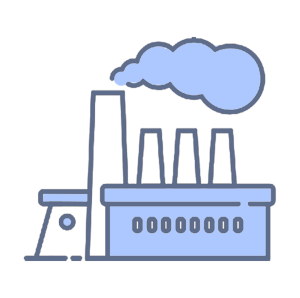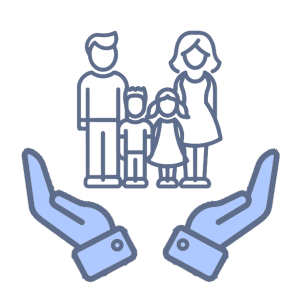CAMAGÜEY.- Getting the scientific production of the country to solve specific problems of Cuban society is still an unsatisfied need, for this reason the insistence of the country's leadership in putting science and innovation into the processes that are developed. To fulfill this request, the University of Camagüey develops innovation programs in line with the most urgent needs of the country.
Eduardo Sierra Gil, director of Science and Technology and Innovation at the University of Camagüey Ignacio Agramonte Loynaz, explained to Adelante Digital that the innovation and development programs come from the 14 scientific lines that work and lead research in the different fields of science for some years now in the house of higher studies.
“It costs us a lot of work to transfer the technologies, products and services derived from science that are applicable in the business sector. To solve this, eight programs were created in correspondence with the Cuban Development Plan until 2030. Our objective is to apply research, develop products and services taking into account their results and transfer them to the productive sectors”, he clarified.
To make this technology transfer viable, the Science and Technology Interface Society, called UCETID S.A., was set up a few days ago, which will put consolidated science and innovation projects at the service of the business community that will favor the capture of freely convertible currency and national currency to reinvest in other innovation projects, in a context in which doing science costs a lot of money.
The society will promote projects, for example, in the rice production of the territory, the production of sorbitol in Florida, and will have close ties with the Artificial Intelligence Research Center in Hebei, China.

PROTUR AND THE UNIVERSITY-BUSINESS-GOVERNMENT LINK
With the objective that science seeks solutions to develop products and services that strengthen the competitiveness, diversification and sustainability of tourism, the Sustainable Development of Tourism innovation program is carried out, led by the Center for Multidisciplinary Tourism Studies of the UCIAL.
As explained by the project leader and director of CEMTUR, PhD. Gerson Herrera Pupo, participate from a transdisciplinary careers in Economics, Accounting, Tourism, Architecture, Heritage Management, Civil Engineering, Law, Computer Science, Sociocultural Studies and Industrial Engineering.
“Among other results, we already have a psycho-educational intervention program for the development of socio-emotional skills in gastronomic dependents of the hotel industry; a Cost Management control in hotels that use the All Inclusive modality; a quality management system in the ITH Camagüey marketer, an integrated evaluation of the sustainability of the destinations in Santa Lucía Beach, as well as a study on the productive chains for the supply of agricultural products to the tourism sector in Camagüey”, said the also architect.
In addition, this innovation project works as an observatory for tourism, especially in the province, with tools that allow quick decision-making and guarantees advice based on transdisciplinarity that allows for a close link with the rest of the seven prioritized programs.
Among the missions they currently have is to carry out studies to relaunch the tourist product Santa Lucía Beach, not so much as a sun and beach destination, but to take better advantage of the natural riches it has, as well as continue promoting city tourism in Camagüey.
THE SOCIAL SCIENCES FROM A CROSS-SECTIONAL VISION
With the aim of promoting the development of social and humanistic research on the priority issues of society, another of the prioritized programs is the Social Sciences: Demands of social development, education and increased quality of life.
In this regard, the PhD. Efrén Álvarez Rodríguez highlighted the transversality of this program, whose missions are to advise government structures, political and mass organizations, companies and institutions in the use of scientific-technical results for the decision-making process, as well as later evaluating the results of measures taken and controlling their effectiveness.
Eight dimensions are intended to evaluate the impact of other projects and of this one on society: socio-economic, population, educational, health, cultural, communicational environment, and all of this leads to strengthening the political and the ideology of the Revolution.
Among the main results, the professor explains, are the identification of social variables that affect shrimp farming in Santa Cruz, "we are doing a similar investigation at the Nuevitas thermoelectric plant to evaluate the migration of professionals, the level of satisfaction of the workers, the contradictions between those who work in the EMCI and those who work in the 'thermo' itself. We are also in Sorbitol, Florida, in Prodegan, we accompany the ordering of Internal Trade in the territory and as a result a significant number of workers are already studying in two university careers”, Álvarez Rodríguez summarized.
Added to this program activity is the work of the University's Social Observatory, which is fundamentally aimed at strengthening political-ideological work.
SCIENCE THAT SOLVES PROBLEMS
The main results of the University in 2022 are related to the strategic sectors to which the innovation processes are directed, which already shows the role that they are having in driving the science that is done from the house of high studies for the society.
In food production and the sugar agricultural business, results are already being obtained in the comprehensive use of multipurpose autochthonous microorganisms (MAM) in goat farms and in prosiculture; technologies for the production of animal feed (production of silage, hay and planting of pastures) and management of cattle reproduction, development of alternatives for the production of food from sugar agro-industrial biomass; the design of mixtures (feed) incorporating local resources such as flour from tithonia, mulberry and leucaena leaves that are being used as a supplement in sheep.
The electro-energy sector is moving towards the control, regulation and accommodation of electrical loads through an optimization model using artificial intelligence techniques, which guarantees minimum energy consumption during peak hours, with minimum maximum demand and minimum load graph discontinuity. Algorithms for the prediction of electricity demand and models for the prediction of photovoltaic generation and the evaluation of the performance of photovoltaic installations were also achieved, as well as the manufacture of LED street lighting lamps with high integration of the national industry.
In construction, dosages were studied to obtain concrete blocks with sandbox residues, the manufacture of Roman cement with additions of portland cement and its possible applications, and the design of hot asphalt concrete mixtures with the addition of synthetic rubber used as aggregate and the architectural and structural design of wooden buildings in fire situations and the formulation of the optimal design problem and selection of the optimization methods to be used in steel-concrete composite beams of buildings facing fire.
In Information and Communication Technologies, evolutionary algorithms were achieved for the optimization of supply chains and transport routes. Added to this is the acquisition of knowledge about the lethality of the Pandemic using artificial intelligence techniques.
In tourism, a methodological alternative was achieved for the development of socio-emotional skills of hotel professionals and the integrated management of tourist destinations in heritage cities based on local development.
These results are expressed in the link with local development through projects such as the one that seeks the comprehensive development of the Cándido González Agroindustrial Company of the Santa Cruz del Sur Municipality, belonging to AZCUBA, the link with the Agroindustrial Grain Company “Ruta Invasora ”, with the application of artificial intelligence in the management of rice cultivation and irrigation, as well as the intensification of the Sorbitol production process and the new technology project to improve operational reliability and generation efficiency at the CTE "October 10th".
The results that are being obtained, the interface company, the accumulated knowledge and an organization that prioritizes what is really important shows that our science, the one that is done here in Camagüey, in the first university created by the Revolution, has as a priority to find solutions fast and sustainable with real science that has its sights on the problems.
|
Energy efficiency program and renewable energy sources Coordinator: Dr.C. Davel Borges Vasconcellos Objective: to promote efficiency in the use and distribution of electrical energy, the development of renewable energy sources and the use of waste with energy potential. |

Industrial management, diversification and efficiency program Coordinator: Dra.C. Hilda Oquendo Ferrer Objective: to promote innovation processes, technological improvement, and training systems, aimed at increasing industrial efficiency, import substitution and the development of exportable products; as well as the development of value chains and productive linkages. |
|
Housing construction program and development of new construction materials Coordinator: Dra.C. Riselda Guzman Mendez Objective: to promote the development of efficient construction systems with the use of the appropriate available technology, and the obtaining and development of construction materials from available local resources. |
|
Coordinator: Dr.C. Nestor Loredo Carballo Objective: to promote the improvement of local sustainable development management of municipal governments, based on the development of productive chains and value chains. |
|
Program for the computerization of society and artificial intelligence Coordinator: Dr.C. Julio Madera Quintana Objectives:
|
|
Coordinator: Dr.C. Efren Alvarez Rodriguez Objective: to promote the development of social and humanistic research on the priority issues of society, application and development of socioeconomic policies, quality of life of the population; as well as perfecting the methods of introducing its scientific results in decision-making at different levels, by agencies, entities and institutions. |
|
Sustainable Tourism Development Program and its diversification. Coordinator: Dr.C. Gerson Herrera Pupo Objective: to develop products and services that strengthen the competitiveness, diversification and sustainability of tourism, promoting the increase in income from service exports, its ability to create sources of employment, to promote national culture and increase its linkage with internal markets and national productions ; as well as, achieving greater efficiency in the services provided. |
|
Coordinator: Dr.C. Amilcar Arenal Cruz Objective: to promote the generation, introduction and generalization of results that contribute to the development of agri-food value chains, the food production industry and production chains, in such a way as to guarantee food sovereignty and nutritional education in the Cuban society; substituting imports and developing exportable products. |
Translated by Linet Acuña Quilez






 Program for the management of sustainable local development.
Program for the management of sustainable local development.
 The Social Sciences: Demands of social development, education and the increase of the quality of life
The Social Sciences: Demands of social development, education and the increase of the quality of life
 Food sovereignty and nutritional education program
Food sovereignty and nutritional education program